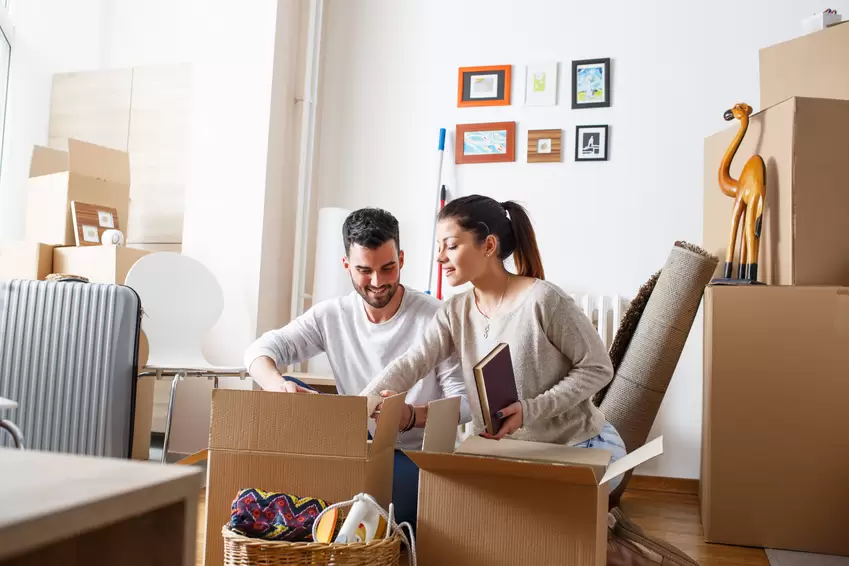 In the U.S., owning a home is still very much a rite of passage. It’s part of the American Dream, after all. And in 2017, 63% of non-homeowners felt it was a good year to purchase a home. But if you’re planning to buy your first house, there are certain financial pitfalls you’ll need to avoid. Otherwise, your home may become more of a nightmarish burden than the ultimate fantasy. First-time homeowners, take note: here are some budgeting tips to keep in mind before you make an offer.
In the U.S., owning a home is still very much a rite of passage. It’s part of the American Dream, after all. And in 2017, 63% of non-homeowners felt it was a good year to purchase a home. But if you’re planning to buy your first house, there are certain financial pitfalls you’ll need to avoid. Otherwise, your home may become more of a nightmarish burden than the ultimate fantasy. First-time homeowners, take note: here are some budgeting tips to keep in mind before you make an offer.
Never look above your price range
It’s so easy to fall in love with a house that you can’t afford. And like any situation wherein the fit isn’t quite right, it’ll break your heart. Avoid the situation altogether by setting a strict budget before you even start looking. You’ll also need to keep your expectations in check. Although you feel a particular neighborhood might be ideal, a desirable location will always come with an increase in price. Of course, you shouldn’t have to compromise on the quality of local schools or your safety to find a home you can afford — but you should be prepared to make compromises. Above all else, don’t tempt yourself by even entertaining the idea of going above your budget. It’ll only end in tears (one way or another).
Aim for a 20% down payment
In most situations, it’s best if you can swing a 20% down payment on a home. If your current budget won’t allow for that, you may need to consider lowering your budget even further. Buyers who don’t put 20% down may have to pay more for private mortgage insurance. Plus, buyers who put more money down from the start tend to buy homes faster and make fewer offers overall, and this method typically reduces your financial risk in case the market changes significantly if you sell that home later on.
Don’t forget moving and “settling in” costs
When creating the budget for your first home, you need to consider a lot more than the price of the home itself. You’ll need to factor in moving costs, new purchases (like decor and furniture), and even cleaning products or food supplies. These costs may seem fairly minimal, but they add up quickly — especially if you’ve accumulated a lot of stuff or you have a lot of big-ticket items that need to be replaced or purchased for the first time. You should outline these items as part of your budget to ensure you aren’t actually spending more than you think.
Factor in taxes, insurance, utilities, and maintenance
In addition to the aforementioned expenses, you definitely can’t forget about these fees. You’ve probably already added in your mortgage payments, but you need to prioritize property taxes and home insurance payments, too. Since these two things alone can represent a few thousand dollars a year, you literally can’t afford to overlook them. Plus, you’ll need to factor in utility bills (gas and electric, HVAC, water, internet, and cable, for starters) as well as regular maintenance costs that come along with these utilities. You’ll also have to consider the costs of maintaining your law, the roof, and the structure of your home. Plan on scheduling maintenance once a year, even if your home was built more recently, and set aside money in the budget for those tasks.
Plan for the unexpected
While you should always set aside money in the budget for the usual maintenance fees, you should also keep in mind that when you own a house, things will sometimes go awry. For example, your household septic system should be inspected at least every three years or so, but you may wake up to an unwelcome surprise one morning if your system is clogged. Alternatively your home might sustain storm damage or your heater might break down. These repairs can be expensive and often happen at the most inconvenient times. If you have a bit of a financial cushion from the start, these events won’t represent a huge crisis.
Budgeting for your first home isn’t an easy task, but it becomes a lot less daunting when you know exactly what to include and what to watch out for. When you have a clear idea of what you can actually afford, you can be more confident that the home you choose will allow you to make happy memories, rather than becoming a source of stress.

